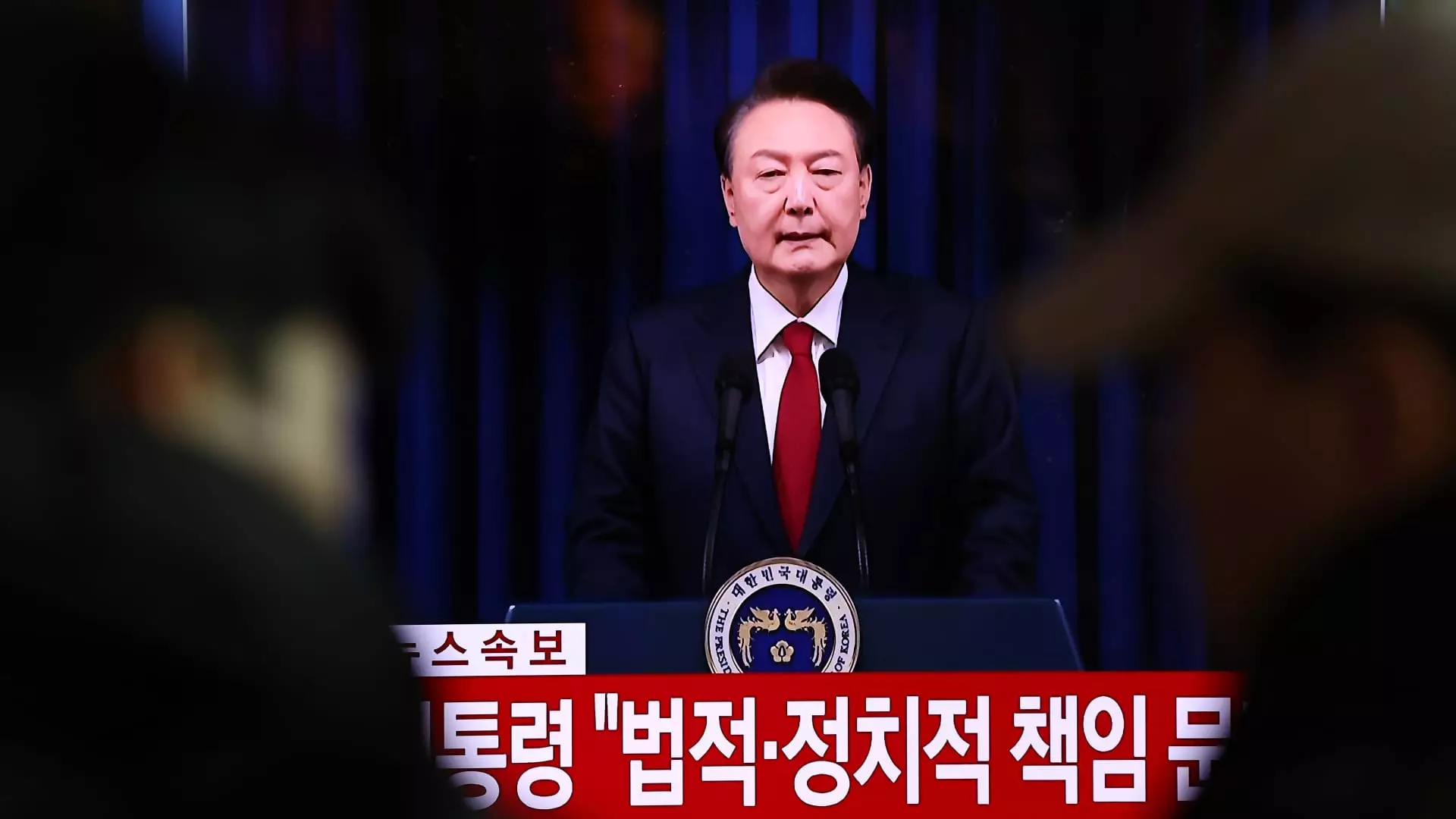The recent impeachment of South Korean President Yoon Suk Yeol marks a significant chapter in the nation’s political saga, reflecting the complexities and volatility of its political landscape. This event, which transpired on a Saturday, was catalyzed by Yoon’s abrupt and controversial attempt to impose martial law just weeks prior, an endeavor that garnered widespread criticism and triggered a political earthquake within the National Assembly. The fallout from this decision, which he retracted merely six hours later, incited concerns regarding his authority and intentions, making the subsequent impeachment vote somewhat inevitable.
Initially, on December 7, a motion to oust Yoon failed to meet the necessary threshold, emphasizing the fragmented state of South Korean politics. However, things changed drastically as support for the impeachment solidified, particularly from within the People Power Party (PPP), which had previously made a strategic retreat during the first vote. This shift illustrates the fluid nature of political alliances in South Korea, where public sentiment and internal party dynamics frequently dictate political actions.
Yoon’s declaration of martial law on December 3 was notable, marking the first such declaration since the military coup of 1979. His rationale was couched in rhetoric focused on restoring constitutional order and tackling pro-North Korean elements that he claimed were undermining the freedoms of his citizens. This declaration, however, was perceived by many as a direct threat to democracy, prompting rapid backlash from opposition lawmakers and civil society advocates alike.
The hastiness and brevity of the martial law announcement only amplified suspicions regarding Yoon’s governance style. In his subsequent national address, Yoon attempted to frame the situation as a struggle against perceived insurrectionist opposition, but his words did little to assuage the fears of many South Koreans, given the historical weight of military rule in their nation’s collective memory. The polarization between Yoon’s administration and opposition parties laid bare the fragile fabric of South Korea’s democracy.
Beyond the martial law controversy, President Yoon has been engulfed in a series of scandals, many linked to his wife, Kim Keon Hee. These allegations have compounded public discontent and eroded his approval ratings, which plummeted to an alarming 17.3% following the martial law debacle. This descent into unpopularity emphasizes a broader issue of accountability and governance that has plagued South Korea’s leadership for years.
Public sentiment can quickly turn in democracies, and in Yoon’s case, the combination of his controversial policies and ethical questions surrounding his administration created a perfect storm for this impeachment. Voter fatigue and demands for higher standards may continue to shape political outcomes, reflecting a society that increasingly demands transparency and integrity from its leaders.
The political instability accompanying Yoon’s impeachment has raised significant concerns regarding South Korea’s economic landscape. Markets often react unpredictably to political turmoil, and investors previously showed concern about the stability of Asia’s fourth-largest economy. However, as John Woods, chief investment officer at Lombard Odier, noted, there may be an eventual stabilization as observers begin looking past immediate crises towards the more substantial economic factors at play.
The South Korean economy is deeply intertwined with technology and innovation. Predictions from the International Monetary Fund (IMF) for a 2.5% growth rate highlight resilience amidst political challenges. The underlying strength of the tech sector, particularly in artificial intelligence and semiconductor industries, bodes well for the country’s economic future, suggesting that, despite political turbulence, South Korea may continue to thrive economically.
Yoon Suk Yeol’s impeachment is emblematic of broader trends in South Korean politics, revealing both structural weaknesses and public expectations of democratic principles. As the nation contemplates its next steps, the ramifications of this political upheaval will resonate beyond Yoon’s presidency, potentially influencing future governance structures and party alignments. South Korea stands at a critical juncture, tasked with finding a balance between political integrity and economic vitality while navigating the treacherous waters of internal and external pressures. The unfolding narrative of South Korean politics will undoubtedly be one to watch in the coming months, as the country strives for stability and progress in an increasingly complex world.

